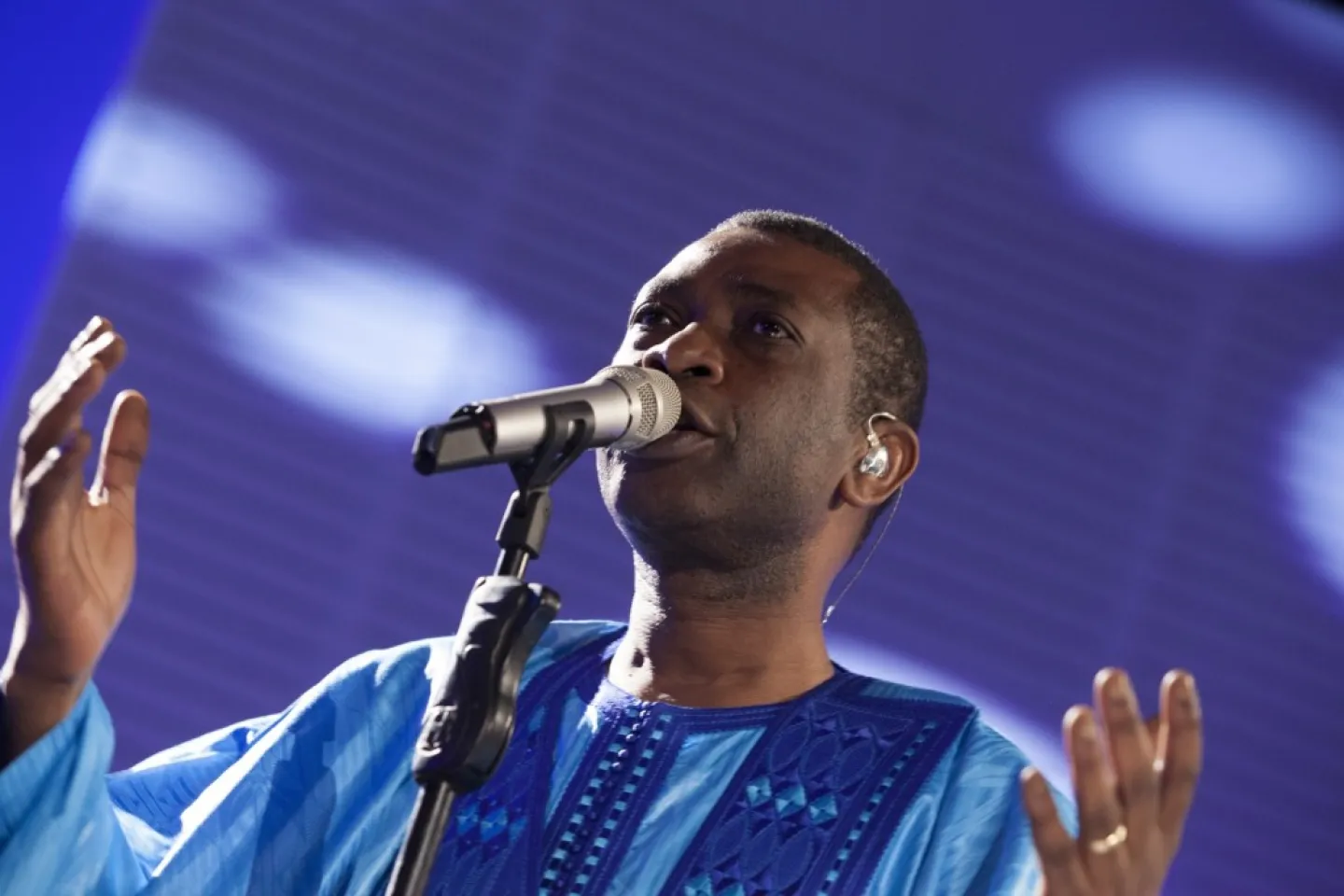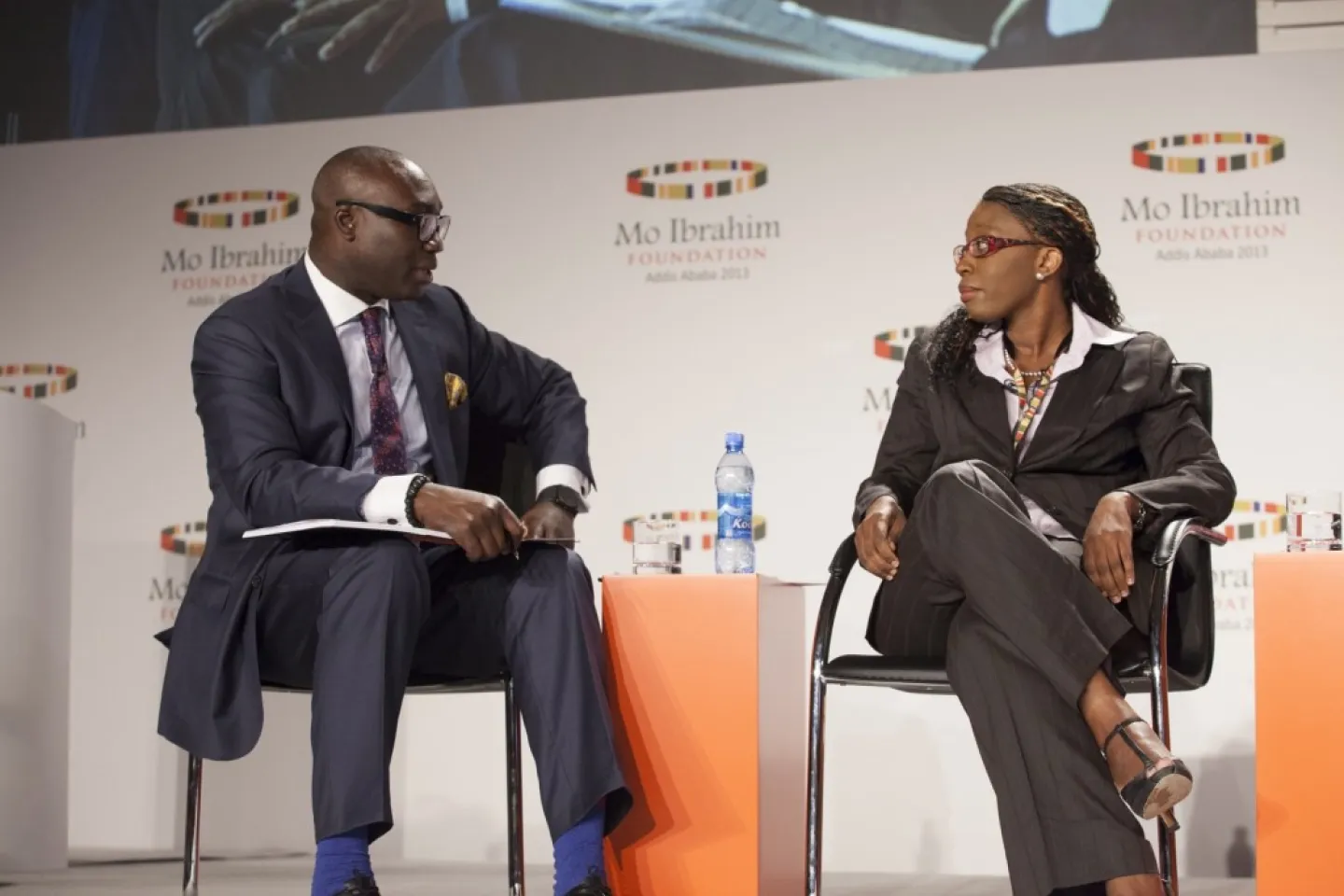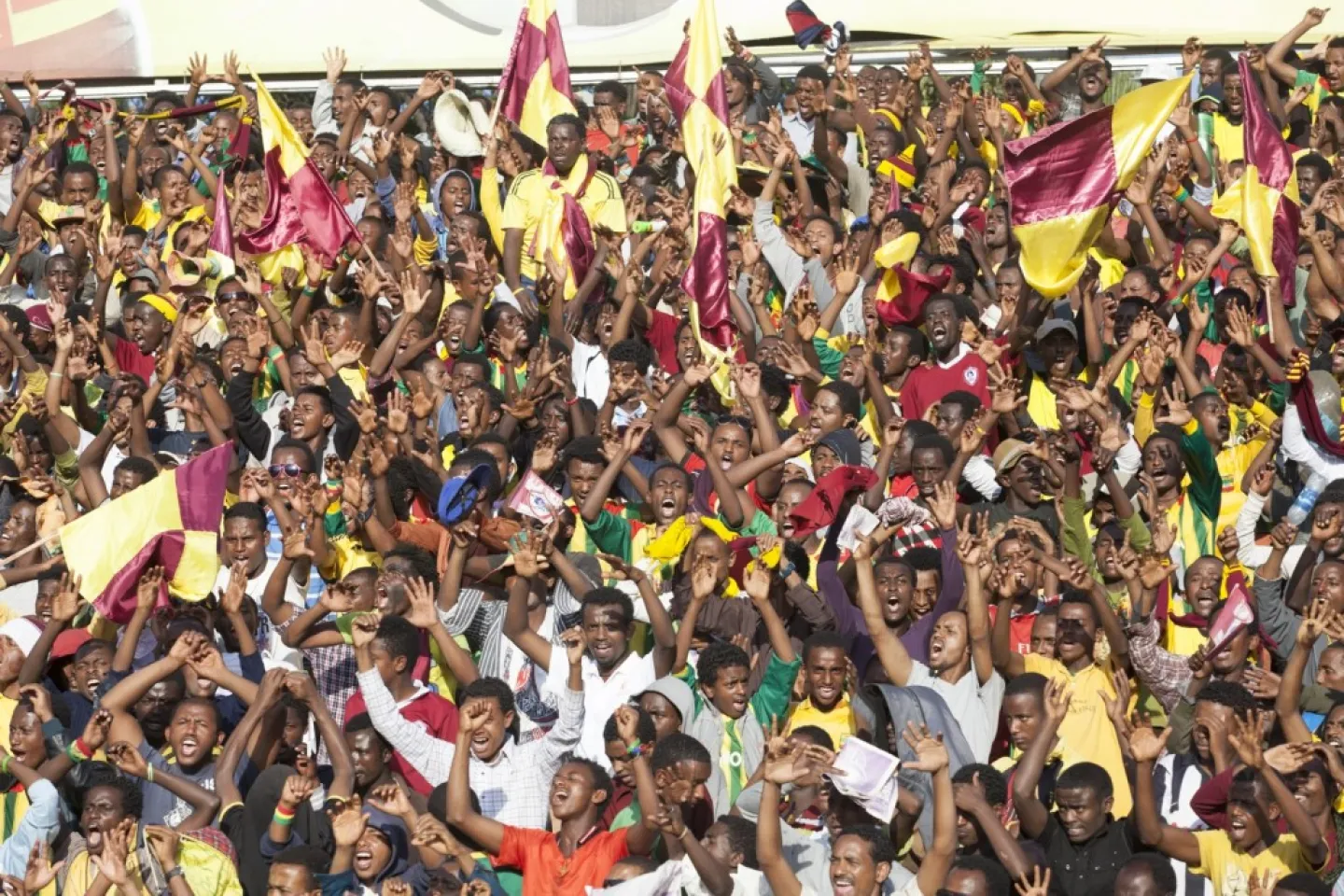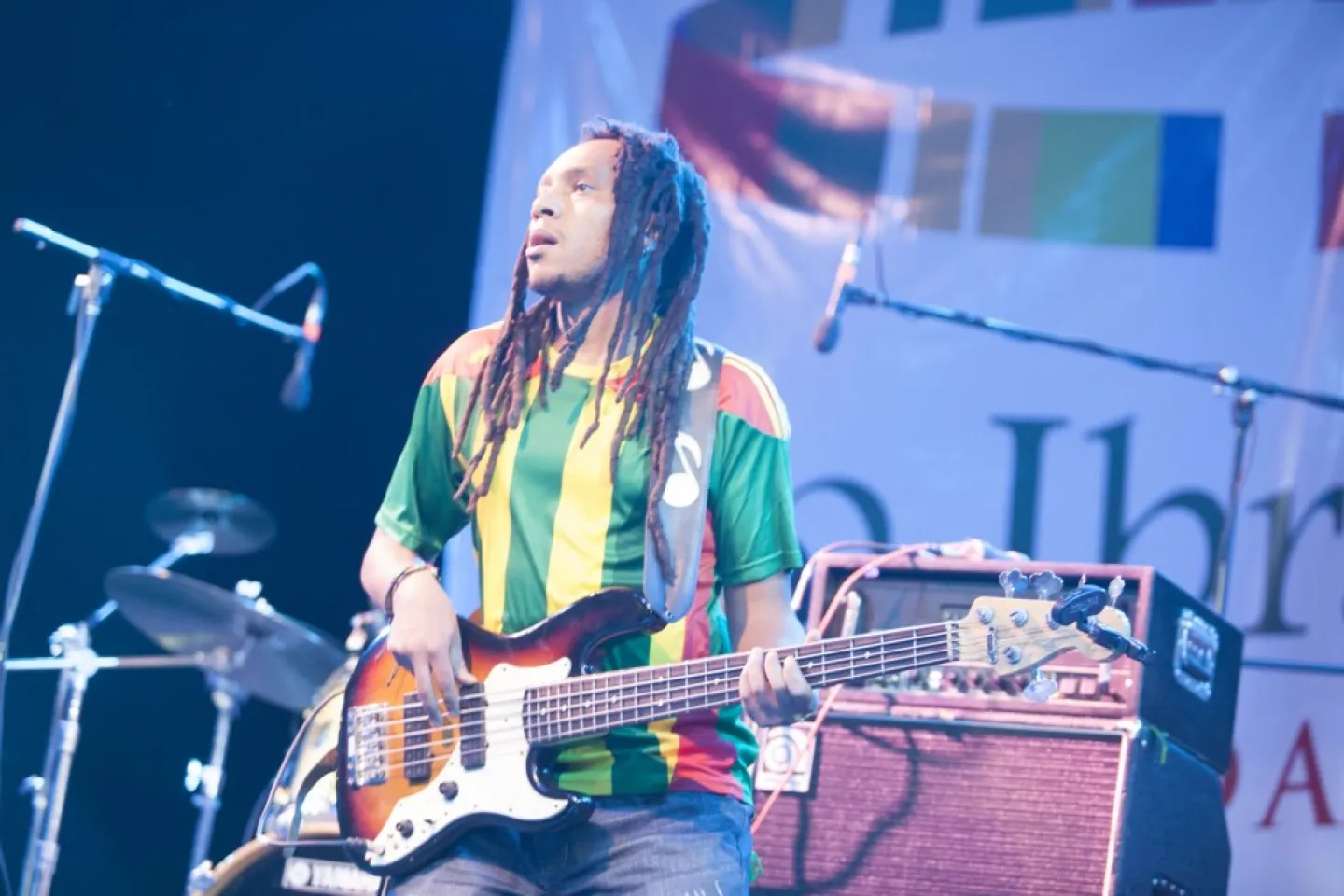2013 Ibrahim Governance Weekend
Addis Ababa, Ethiopia
The Ibrahim Governance Weekend (IGW) brings together leading voices from across Africa and beyond to discuss issues of critical importance to the continent’s progress.
Since 2013 marked the celebration of the 50th Anniversary of African Unity, the Forum’s focus was on the major opportunities and challenges the continent will have to tackle over the next 50 years.
2013 IGW highlights
2013 IGW events
African Leadership Ceremony
Saturday, 9 November
The 2013 Ibrahim Leadership Ceremony was held in the new African Union building in Addis Ababa. Hosted by Zainab Badawi, there were speeches from Mo Ibrahim, Kumi Naidoo, International Executive Director of Greenpeace, Sello Hatang, CEO of The Nelson Mandela Foundation and Bono. There were musical performances from Youssou NDour, Angelique Kidjo and Jah Lude and the Mehari Brothers.

Ibrahim Forum
Sunday, 10 November
The Mo Ibrahim Foundation convened its fourth annual Ibrahim Forum in Addis Ababa, Ethiopia. High-level stakeholders belonging to various public and private constituencies, as well as selected non-African partners participated in an open and frank discussion.
To stimulate the debate on the major opportunities and challenges the African continent has to tackle over the next 50 years, the 2013 Facts & Figures provided highlights on Africa’s potential assets and challenges that require exceptional leadership and governance.
2013 Facts & Figures
Africa Ahead: The Next 50 Years
2013 Forum Summary

Panel 1: Human Development
The population of a country is a leader’s fundamental unit of responsibility. For the African continent, the potential benefits of present demographic trends can be huge, especially given the changing global context. However, in order to realise this potential, major challenges regarding the health, education and welfare of citizens need to be overcome. Today’s policy decisions will have a critical impact on the younger generation, who will become the bulk of African electorates and of the world’s labour force.
Panel 2: Sustainable Economic Opportunity
Recent decades have registered major shifts in global economic trends and balances. Africa is now leading on economic growth, traditional donors’ aid is giving way to emerging countries’ direct investment and some African countries are becoming creditors. However, there are still major hurdles to overcome to fully maximise the opportunities such economic changes and abundant natural resources present. Both public and private sectors have a shared responsibility to ensure that resource governance is strengthened and financial autonomy secured. In order to effectively become a competitive stakeholder in the global economy the continent must achieve regional economic integration, and upgrade its fragmented infrastructure network.
Panel 3: Safety & Rule of Law
Major changes are appearing in the nature of security threats, which need to be assessed and tackled. Most of the long-lasting regional conflicts and civil wars of the last century have come to an end. Nevertheless, social unrest and violence are mounting within countries, among a young population devoid of sufficient prospects. At the same time, terrorist threats and transnational criminality are spreading across the continent, with probable links between them. These crucial challenges can only be properly addressed with an integrated and regional approach, and require strong governance and committed leadership.
Panel 4: Participation & Human Rights
With the expanding use of technology, modes of participation and democratic tools are moving beyond the ballot box. The expected youth majority presents an opportunity or a threat, depending on how seriously inclusivity and social cohesion are taken in the political decision-making process. Whilst lengthy terms in office may offer an experienced government, this cannot be at the expense of a sound and sustainable democratic system. The ambitions and expectations of the younger generation must be taken into account, in order to ensure a smooth generational transition, and a shared vision of the next 50 years of the continent.
Closing session
Speakers:
- Amadou Mahtar Ba
- Mo Ibrahim
- Elsie Kanza
- Mamadou Toure
Football match
Friday, 8 November
The Mo Ibrahim Foundation staged an exciting friendly football match at the Addis Ababa Stadium. Ethiopian Bunna SC played TP Mazembe from Democratic Republic of Congo, one of Africa’s most successful clubs. Marching bands and music entertained the crowd of local fans who watched TP Mazembe go on to win the Mo Ibrahim Foundation 'Africa United Cup'.

Concert
Friday, 8 November
As part of the celebrations around its 2013 Annual Governance Weekend, the Mo Ibrahim Foundation brought together a line-up of some of Africa’s greatest music stars to perform for a packed stadium of fans in Addis Ababa. The stadium rocked to the sounds of the most famous reggae performer in Ehiopia, Jah Lude and his band the Mehari Brothers along with Youssou NDour and Angelique Kidjo. The climax of the evening came with U2’s Bono joining the assembled stars on stage in front of the packed crowd on the pitch below.


